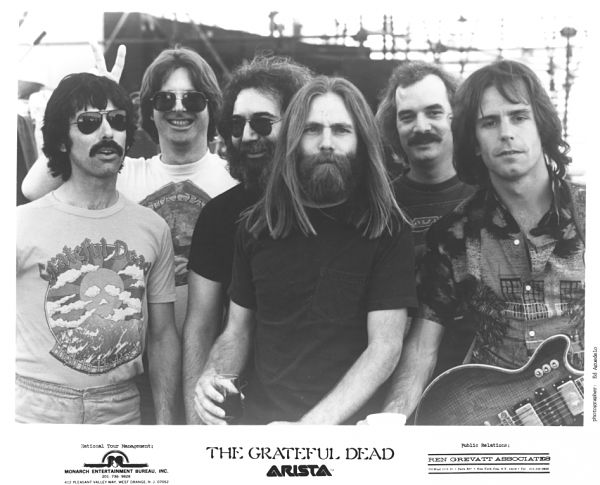Phil Lesh (Grateful Dead)

Tom Semioli
He anchored one of the most intriguing, confounding, and beloved ensembles in the history of modern music. The Grateful Dead forged two camps in their storied career: those that adored them, and those that couldn’t (or wouldn’t) understand them!
Regardless, their importance cannot be denied. Their concerts (of which I attended many) were fascinating incursions into the known and unknown, routinely incorporating elements of experimental, avant-garde, jazz, blues, folk, Middle Eastern, classical, Americana, country, bluegrass, musique concrète, and permutations thereof.
The bandstand was their natural habitat – however despite the clueless journo detractors (refer to Frank Zappa’s quote on rock reportage), and their own admitted self-doubts in the studio, the Dead waxed several brilliant sides throughout their career.
Proletariat bassists are oft inculcated to commence their passages at the root and the downbeat then gradually progress harmonically and rhythmically outward – some more so than others.
Enter Philip Chapman Lesh, renowned for his long, strange, watershed trip steering the defiantly wayward ship christened Grateful Dead. Along with his peers Jack Bruce (Cream) and Jack Casady (Jefferson Airplane) – Phil established the instrument apart from its upright bass, electric guitar ancestry.
Opined bandmate Bob Weir in a 2016 Guitar World interview “Phil is an iconoclast by nature, and I think he actually disdains the traditional role of the bass player…”
On the Dead’s exploratory forays, Lesh often started “outside” and kept going – yet you could still decipher the essence of the song within his improvisations and motifs. Phil’s musical development on violin and trumpet along with his education in the avant-garde and classical genres taught him “the rules” – and how to break them.
Consider that Lesh was a novice on the instrument in the Dead’s early days, alas he had no preconceived notions of what a bass guitar was – or was not. Yet Phil could traditionally outline the changes with the commoners – while his tone constantly evolved by way of his continual curiosity and usage of state-of-the-art bass gear.
As such we can thank Phil for the modern boutique bass culture. Check out Phil on Live/Dead (1968) – for a player with a scant three years’ experience, Lesh displayed an extraordinary command of the instrument.
In 2006 Phil penned his autobiography Searching for the Sound (Back Bay Books). Lesh also participated in many of the Dead post-Garcia ensembles including The Dead, The Other Ones, and he led Phil Lesh & Friends on several tours and recordings.
If KYBP delved into Phil’s tools-of-the-trade, we might break the internet.
Several gear centric sites do a fine job of documenting Phil’s weapons of choice, check out: https://jam.buzz/extra/phil-lesh-gear-guide/
Dead archival releases abound since the band ceased to exist following Jerry Garcia’s passing in 1995.
I advise you to seek out the Dick’s Pick’s series which span their entire career, along with “official” recordings which neatly bookend the Dead – the cinematic, chaotic masterpiece Anthem of the Sun (1968) and the overly polished Without a Net (1990) wherein Lesh duels with Branford Marsalis.
“That’s It for the Other One” https://youtu.be/T0BZifioxdo
“Eyes of the Sun” with Branford https://youtu.be/2S7ZvaWLsmA
The Dead’s most accessible studio slabs – American Beauty and Workingman’s Dead (1970) along with the underrated From the Mars Hotel (1974) and the much-maligned Shakedown Street brilliantly produced by Lowell George (1978) – reveal the “inside” Lesh – which kept the Dead as grounded as they could ever be.
Upon Phil’s departure from this mortal coil, Phil’s surviving co-workers Bob Weir, Micky Hart, and Bill Kreutzmann’s collaborative social media post proclaimed “In one note from the Phil Zone, you could hear and feel the world being born. His bass flowed like a river would flow. It went where the muse took it.
He was an explorer of inner and outer space who just happened to play bass. He was a circumnavigator of formerly unknown musical worlds. And more.”
Phil on lead vocal for “Box of Rain” https://youtu.be/nxjvo4BRf-Y
Disco Phil on “Shakedown Street” https://youtu.be/I7hpKHPvRVQ
